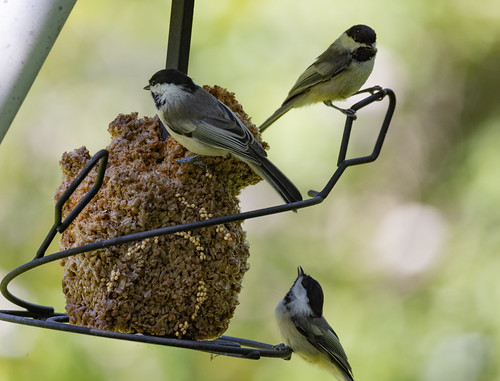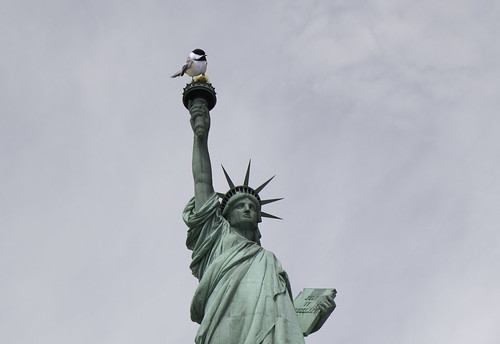One gloomy November back in the 80s, the sun came out just once, on my birthday as it happened. I remember how melancholy that month was, a gloom that didn’t just settle in—it got worse and worse as the month wore on. Somehow, we adjust to a certain amount of sunshine in a certain annual rhythm, and our spirits wilt when we get less. I don’t suffer from seasonal affective disorder, but this experience sure made it understandable to me.
My cataract surgery just before the pandemic finally opened my eyes to the true blue of the sky, so I know what I’m missing right now. During this drought, we’ve had plenty of cloudless skies, but the murky haze enveloping the Northland has become as oppressive as that long-ago, dreary, overcast November, and this time it’s toxic—so much smoke from so many fires in Canadian provinces and Western states blowing in if there is any western or northern component to the wind direction. Last week, weather forecasters said our awful air quality would be dissipating by this past Tuesday, but no such luck. On Sunday, at least some of us Northlanders saw an unpredicted brilliant blue sky for the first time in weeks, but it was back to murky grayness before the sun even set.
The air quality is frustrating for just about all of us, and outright dangerous for people with asthma and other health issues and for babies with their developing lungs. I brought my 11-month-old grandson outside for 10 minutes yesterday. I came in with a scratchy throat and burning eyes. Walter can’t say how he’s feeling, but he kept rubbing his eyes and nose for hours.
I spent a couple of hours outside on my own the previous couple of days, photographing nesting House Wrens and baby cardinals and catbirds, and watching my backyard baby chickadees, still hanging out with their parents but feeding themselves now.
Drought conditions are hard enough for nesting birds—one study on Song Sparrows concluded that they most successfully reared young in rainy seasons, and least successfully during droughts, not even taking into account how toxic air quality might exacerbate drought conditions. Baby birds cannot communicate discomfort to us the way human babies can, but their developing lungs must be at least as vulnerable as Walter’s.
I love looking at the Perseids every August, but this year, they’ll be very hard to see, hidden behind the murk. Stargazing is a lovely diversion for many humans, but detecting the stars is not just a fun hobby for birds—many nocturnal migrants find their way via celestial navigation. In these species, baby birds must learn the night sky, to see which star remains fixed, before they take off, and during migration, these young birds and adults all need to see the stars. How will this horrible year affect them?
We humans can use air conditioners and air filters to make our indoor air safer than what it is outdoors, ironically contributing to the climate change that is the root cause of both the widespread extreme heat and drought and the extraordinary number of fires they brought on. We’ve had plenty of warning, for plenty of decades, that for plenty of reasons, both for the natural world itself and for our own self-protection, we must reduce our use of fossil fuels and commit to not just ending tropical deforestation but reversing it.
We keep talking about our species being the smartest on the planet, but right now our intelligence is being tested on two fronts, and we’re failing badly on both. People rejecting the proven science behind vaccinations kept Covid spreading for critical extra months, allowing it to mutate into even more dangerous variants. And people rejecting the science that has long predicted global warming are still fighting efforts to at least slow the effects. Of course we’ve always had droughts and fires and storms and disease, and always will. But our intelligence combined with our sense of community used to help us solve, and sometimes outright prevent, many dangers.
Chickadees, just as invested in their personal survival as humans, find a much better balance between independence and community. I’m starting to wish the people who ostensibly live by a Constitution would pay closer attention to that Constitution’s underpinnings, which pretty much describe the way chickadees organize their social flocks. The Preamble reminds us that the whole point of our government is to "establish Justice, insure domestic Tranquility, provide for the common defense, promote the general Welfare, and secure the Blessings of Liberty to ourselves and our Posterity." This past year we American humans reduced the life expectancy of our own population by a full year and a half. Birds, who suffer even more than we do from human greed, shortsightedness, and lack of community spirit, may not be as intelligent as we are by some measures, but they’re definitely a lot smarter.




